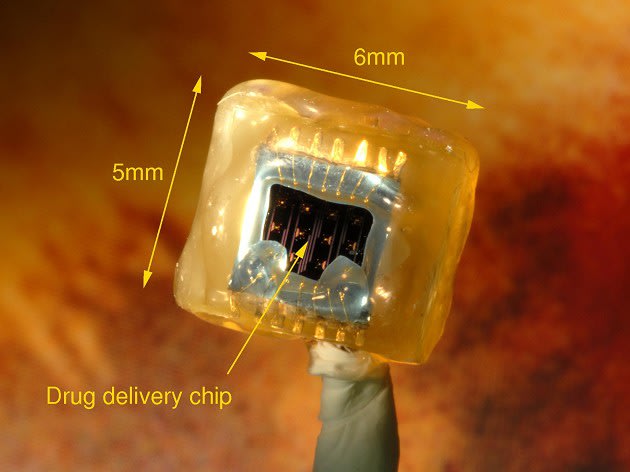Cardinal Jorge Mario Bergoglio of Argentina is elected ‘Pope Francis’
A 76-YEAR-OLD JESUIT IS FIRST POPE CHOSEN FROM OUTSIDE EUROPE FOR MORE THAN A MILLENNIUM
NEWLY ELECTED POPE FRANCIS I APPEARS ON THE CENTRAL BALCONY OF ST PETER’S BASILICA ON MARCH 13TH, 2013 IN VATICAN CITY, VATICAN. ARGENTINIAN CARDINAL JORGE MARIO BERGOGLIO WAS ELECTED AS THE 266TH PONTIFF AND WILL LEAD THE WORLD’S 1.2 BILLION CATHOLICS.
Cardinal Jorge Mario Bergoglio of Argentina was tonight named as the new pope. Cardinal Jorge Mario Bergoglio of Argentina was tonight named as the new pope.
Cardinal Bergoglio (76), who is regarded as a surprise choice, will be known as Pope Francis.
His dramatic election was signalled when white smoke billowed from the conclave of cardinals meeting in the Sistine Chapel.
Cardinal Bergoglio came second in the conclave which chose Pope Benedict, who retired last month. He is the first pope to be chosen from outside Europe for more than a millennium.
After announcing “Habemus Papam” — “We have a pope!” — a cardinal standing on the balcony of St Peter’s Basilica revealed the identity of the new pontiff, using his Latin name.
He has appeared on the balcony of St Peter’s Basilica, to a rousing reception from thousands of gathered onlookers.
“Brothers and sisters, good evening,” Cardinal Bergoglio said in Italian in his first words to the crowd.
He asked for the prayers of “all men and women of good will” to help him lead the Catholic Church.
Francis joked with the crowd before delivering his blessing, saying: “As you know the duty of the conclave is to give Rome a bishop. It seems that my brother cardinals went almost to the end of the world.”
Cardinal Bergoglio has spent nearly his entire career at home in Argentina, overseeing churches and priests.
Michael Noonan insists banks will do more for Ireland’s troubled mortgage holders
MINISTER SAYS MORTGAGE SYSTEM WOULD COLLAPSE WITHOUT THREAT OF REPOSSESSION
Minister for Finance Michael Noonan has insisted banks will do more to accommodate people in severe difficulties with their mortgages now that they have suitably trained staff with a “menu of solutions” available.
Speaking in Limerick today, Mr Noonan said the issue has gone on too long. “We are disappointed it didn’t happen earlier,” he said. “This has to be dealt with in the interest of the people who are in debt because they can’t manage their full mortgage repayments, but also in the interest of the country.
“ You can’t have 100,000 families in a small country not participating in the growth of the economy and they can’t participate if they are burdened with debt,” he said.
Mr Noonan said the banks, since the Keane report, know the “menu of solutions” available to them. He said the Central Bank have been discussing these with the banks.
“The banks themselves lacked staff who could interrelate with people who had impaired mortgages but they have trained up significant numbers of staff now and they have the menu of solutions so there is no particular reasons why they wouldn’t proceed and they are committed now to proceed and we will have details of the arrangements they have made with the Central Bank going on later this week,” he said.
However, he warned the mortgage system would collapse without the threat of repossession. Mr Noonan said that while there is no intention of the practice becoming widespread, the bank’s repossession policy has to be there as “part of the set of solutions”.
Mr Noonan said Ireland has a very low level of repossession by international standards and believes the real emphasis should be on the rental sector.
He said people who own buy-to-let properties who are collecting rent should pay the interest on their mortgages. “If they can’t the investments should be sold and people who can pay the investments should own the property,” he said.
“The policy is in terms of personal mortgages on family homes is that repossession would be a last resort but you have to have repossession as part of the set of solutions because many of us have mortgages and we know the basis of it. You get a loan and the deeds of the house are taken by the bank and if the deeds are no use and they can never get possessions of the property, why would you pay?” he asked.
The Minister described repossession as a “back stop” for the banks to protect their collateral.
When asked if he shared the view of some of his party colleagues that comments by the secretary general of the Department of Finance John Moran were insensitive to those in arears when he suggested the tax payer could not continue to subsidise them, Mr Noonan replied: “John was in the Public Accounts Committee as accounting officer and he is legally obliged under the law and under the Constitution to tell it as it is . He is supposed to the answers put to him by deputies honestly and in a straightforward manner.
“He did that and he made it quite clear that he didn’t see on the personal mortgage side a lot of repossessions, very few. But he said we have very low levels of repossessions at the moment if you make international comparisons.”
According to Mr Noonan, the average arrears for the 35,000 impaired mortgages inAIB is ¤13,000. “So when you look at the average, it doesn’t look like an awful lot of money but people have been drifting into arrears and settlements have to be made,” he said.
Taoiseach and 18 Irish ministers to travel abroad for Paddy’s Day


Enda Kenny presented President Obama with the traditional bowl of shamrock last year
Tánaiste and Minister for Foreign Affairs Eamon Gilmore will also travel to the US where he will meet US Secretary of State John Kerry.
Mr Gilmore said the costs of the visits will be kept as low as possible.
He said the Patrick’s Day events are a very cost effective way of promoting Ireland around the world.
Six ministers in total will travel to the US over the St Patrick’s festivities.
Minister for Public Expenditure and Reform Brendan Howlin will visit Singapore, Indonesia and the Philippines.
Minister of State Jan O’Sullivan will go to Saudi Arabia, while Minister for Justice Alan Shatter is visiting the Middle East.
Minister for Health James Reilly will visit Birmingham and London.
Scientists develop miniature chips to “spy” on a cancer tumours


Tiny sensors which would monitor tumours in unprecedented levels of detail are being developed in a five-year project at a university.
The devices, about the size of an eyelash, would be implanted into patients’ tumours, where they could “spy” on a cancerous growth’s activity.
Experts believe the development would allow doctors to administer radiotherapy and, in time, chemotherapy where and when it is most needed, ultimately improving recovery rates.
Professor Alan Murray, of the University of Edinburgh’s school of engineering, who is leading the study, said: “Experts including scientists, engineers, clinicians and social scientists will be working to target cancer, one of the biggest health concerns of today, in an entirely new way.
“Our aim is, in the long term, to help to alleviate suffering and to improve the outlook for very many cancer patients.”
The miniature chips will be designed to measure vital factors about tumours, such as their levels of blood oxygen and key biological molecules. The information would then be transmitted wirelessly to medical staff.
The readings would enable doctors to target stubborn areas of a tumour that need more intensified radiotherapy.
Sensors would also measure how effective any treatment is in killing cancer cells, enabling therapy to be personalised to individual patients.
Prof Murray said: “What we do at the moment with radiotherapy is rather like night-time bombing.
“We apply radiotherapy to the area where the tumour is, on a regular schedule.
“What these sensors will do is it to say ‘the tumour needs radiotherapy of greater intensity at this particular point right now’. It’s almost like a pinpoint strike with a guided missile.
“It’s a change from knowing where the tumour is and irradiating it, to knowing precisely which bits of the tumour are radio-resistant at any moment in time and selectively treating them with radiation.”
The University of Edinburgh team is working with experts at the city’s Heriot-Watt University to develop the technology, which they hope to follow with clinical trials.
Women wake up grumpier than men because they need more sleep
Women wake up grumpier than men because they need more sleep, according to a new university study.
Researchers studied the sleeping habits of 210 people and found that women who didn’t get enough sleep were ‘more hostile and angry’ in the mornings compared to men who got the same amount of time in bed.
In a report out earlier this month, scientists at Duke University in North Carolina, USA, said that differences in hormones meant women needed more sleep than men.
The research found that women suffer more “mentally and physically” if they don’t get a good night’s sleep compared to men as they need more time asleep to “keep their hormones in balance”.
Edward Suarez, an associate professor at the university, said: “The study suggests that poor sleep – measured by the total amount of sleep, the degree of awakening during the night, and most importantly, how long it takes to get to sleep – may have more serious health consequences for women than for men.
“We found that for women, poor sleep is strongly associated with high levels of psychological distress, and greater feelings of hostility, depression and anger.
“In contrast, these feelings were not associated with the same degree of sleep disruption in men.”
The study also found that women were more likely to develop heart disease, depression and psychological problems than men if they didn’t sleep well over a prolonged period of time.
How Shrinking Families Are Destroying Our Planet

My wife was called for jury duty when she was pregnant with our fourth child. Since her due date was looming, her doctor wrote a letter to the court, asking for an exemption. When I went to the courthouse office to deliver the letter, I was taken aback by how long the line was.
It seemed everyone wanted to get out of jury duty.
When my number was called, I proudly explained my wife’s situation to the courthouse clerk. I expected the clerk to coo with delight and maybe wish memazel tov.
“How can you have four children when the world is overpopulated?” she lectured instead. “You’re a drain on the planet,” she said, citing “pollution” and “carbon footprints” and “limited resources.”
As I walked away, my wife’s exemption safely in hand, I overheard the next woman in line explaining her jury-duty excuse: as a contestant on the reality television show “The Biggest Loser,” she couldn’t miss her only chance for reality television fame and fortune. Not only did she get her exemption, the same clerk who’d admonished me insisted on having her picture taken with this future celebrity. Society’s priorities have certainly shifted.
At the time, I was working on a book to be called The Case for Children: Why Parenthood Makes Your World Better. Thanks to my research, I could easily have challenged that clerk’s misapprehensions about population, pollution and parenting. (I wanted my wife’s precious piece of paper too much to risk doing so, however.)
The fact is, throughout the Western world many secular young men and women are doing everything in their prime reproductive years except reproduce. Millions of people are busily going about their lives – shopping, working, watching television – blissfully unaware that the equivalent of a giant asteroid is heading toward Earth, one that seems too far away to matter until it’s too late. That asteroid is called “population bust” and will damage countries like Russia far more than any real-life asteroid.
Never before in human history have birth rates internationally fallen so far and so fast and in so many places. Close to half the planet (including most of Europe, East Asia, and many Central and South American countries) has a fertility rate below replacement. America is barely at maintenance level, and new census data shows our population growth at its lowest level since the Great Depression.





No comments:
Post a Comment